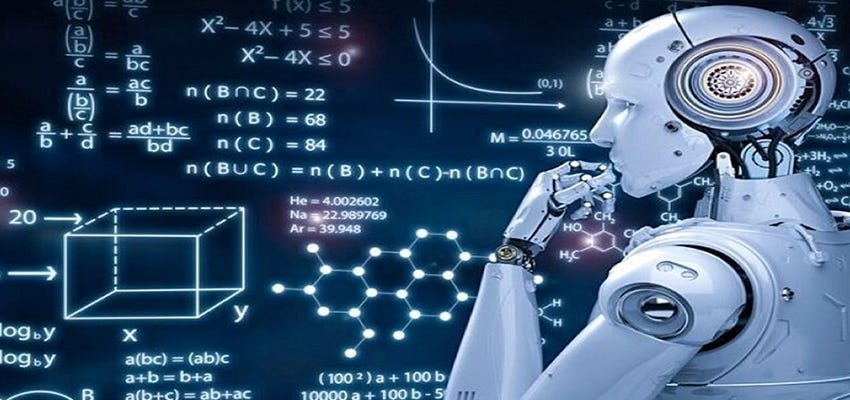Artificial Intelligence (AI) is evolving faster than ever, and one of its most powerful and controversial offshoots is generative AI—the ability of machines to create content that looks, sounds, and feels human-made. Among the most talked-about advancements are deepfakes: hyper-realistic synthetic media where faces, voices, and actions can be faked with astonishing accuracy.
From creating digital celebrities to posing threats to national security, deepfakes and generative AI are fundamentally reshaping how we experience reality, trust information, and interact with technology.
This article explores the many ways these technologies are transforming everyday life, while uncovering the ethical, legal, and societal implications that come with them.
What Are Deepfakes and Generative AI?
🧠 Generative AI
This refers to AI models (like GPT, DALL·E, or StyleGAN) that can generate new content—text, images, music, video, or audio—based on patterns they've learned from massive datasets.
🎭 Deepfakes
A form of generative AI that uses deep learning algorithms (especially GANs – Generative Adversarial Networks) to create hyper-realistic fake videos, images, or audio of people. These can mimic real individuals or create synthetic personas.
How Deepfakes and Generative AI Are Changing Our Lives
1. Revolutionizing Content Creation and Entertainment
🎬 Hollywood-Style Effects on a Budget
AI can generate lifelike special effects, de-age actors, or even create digital clones—cutting costs and expanding creativity in films, gaming, and social media.
🎧 Music & Voice Synthesis
AI-generated voices can mimic famous singers or create entire albums without human artists. Voice cloning is now used in audiobooks, advertisements, and even personalized assistants.
🎨 Art and Design
Tools like DALL·E and Midjourney allow anyone to generate professional-quality images with simple prompts. This is empowering creators, freelancers, and brands globally.
2. Personalized Experiences and Virtual Identities
💁♂️ AI Avatars and Influencers
Deepfake tech powers virtual influencers—digital personalities on Instagram and TikTok with massive followings. Some brands prefer them for 24/7 controlled branding.
📱 Personalized Media
AI can create custom videos, voice messages, or images tailored to each user. For instance, a celebrity might "speak directly to you" in a birthday message—completely AI-generated.
3. Transforming Education and Training
🎓 AI Tutors & Interactive Learning
Deepfake-like avatars can provide lifelike educational experiences, simulating historical figures or offering real-time personalized teaching.
✈️ Simulation Training
Generative AI powers realistic simulations for pilots, doctors, and soldiers—creating ultra-realistic environments and scenarios for safe, effective training.
4. Threatening Truth, Trust, and Democracy
⚠️ Fake News and Misinformation
Deepfakes are already being used to create fake political speeches, fake evidence, or fake endorsements, shaking the foundation of trust in media.
🧠 Information Overload and Doubt
The rise of deepfakes leads to a phenomenon called the “liar’s dividend”—where real events can be dismissed as fake, blurring the line between fact and fiction.
📉 Erosion of Trust
In courtrooms, boardrooms, and newsrooms, verifying reality is becoming harder. Deepfakes raise serious concerns about manipulation, defamation, and blackmail.
5. Raising Legal, Ethical, and Security Concerns
⚖️ Legislation Playing Catch-Up
Most countries have no clear laws to regulate the creation and misuse of synthetic media. The legal system struggles with issues of consent, copyright, and accountability.
🔐 National Security and Deepfake Warfare
Deepfakes could be used for propaganda, impersonation of leaders, or psychological warfare. Intelligence agencies consider them a rising threat.
🤖 Identity Theft and Fraud
AI-generated voices and faces can now fool biometric systems, voice-authentication banking, or video calls—creating new avenues for cybercrime.
The Bright Side: Positive Uses of Deepfakes and Generative AI
Despite their dangers, these technologies offer huge benefits when used responsibly:
- Preserving history: AI can digitally resurrect lost languages, damaged art, or even bring back historical figures for education.
- Accessibility: Voice synthesis helps the visually impaired. AI-generated sign language avatars help the hearing impaired.
- Mental health: AI-generated therapy chatbots or virtual companions offer support to those in need.
How to Navigate the Future: Responsible Use and Media Literacy
Here’s how individuals, governments, and businesses can protect themselves and harness these technologies wisely:
✅ Invest in Deepfake Detection Tools
Tech companies are developing AI to detect manipulated media. Google, Meta, and Microsoft are building tools to flag synthetic content.
✅ Promote Digital Literacy
Teach people how to question, verify, and critically evaluate content. Just as we once learned to spot Photoshopped images, we must now learn to spot AI fakes.
✅ Enforce Clear Ethical Guidelines
Develop and implement standards for AI use in media, advertising, journalism, and politics.
✅ Encourage Transparency
Label AI-generated content clearly—so users know when something is synthetic.
Conclusion: A Double-Edged Sword
Deepfakes and generative AI are not just trends—they’re transformative technologies that will continue to redefine human expression, communication, and trust.
Like fire or electricity, these tools are neither inherently good nor bad. What matters is how we use them. If we act now to build legal safeguards, develop detection systems, and educate the public, we can embrace the creative revolution while protecting our reality from being rewritten.
The choice is ours: will AI deepen our connection with truth and creativity—or distort the world we believe in?

Be the first to share your thoughts!